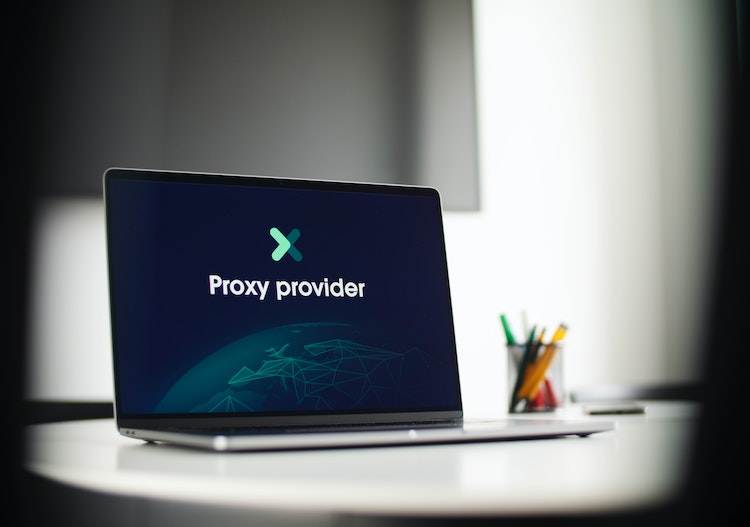Main Differences Between The Datacenter and Residential Proxies
When you browse the depths of the Internet, you are exposing your location and other information on an ultimate peer-to-peer network. Those concerned about security and privacy online should know there is no absolute protection from potential harm online, but there are ways you can increase the level of anonymity.
One of the essential tools to hide your presence online is a proxy server. In a nutshell, the proxy is an intermediary server rerouting your traffic, so it doesn’t appear to come from your IP address. Hiding IP addresses and bypassing restrictive geo-location services are among potential use cases for proxy servers.
However, proxies can do much more than allow you to browse the entire Netflix catalog you can’t get in your country. Proxies are invaluable for many professions that do market research, web scraping, and testing of foreign markets.
The two most used services are data center proxies and residential proxies. Understanding the differences between the two is crucial to make an informed decision when choosing a proxy server. In this article, we will examine the critical differences between the data center and residential proxies and explore the advantages and disadvantages of each.
Datacenter proxies features and advantages
The main benefit of datacenter proxy services is speed. The IP addresses datacenter proxy uses are hosted in the data center. You may get cloud and web hosting companies’ IP addresses by renting such a service.
Datacenter proxy is fast and stable because of their location within powerful server rooms with fast connections. As a result, you can have unreal speeds and constant uptime.
Providers offer private datacenter proxy services, or you can save money using shared proxies. Another massive advantage of data center proxies is the price. These proxies are affordable, and you can buy them in bulk, covering a range of IP addresses.
Thanks to the data center location, such proxies attract clients by offering unlimited traffic.
However, the speed advantage of data center proxies is also one of their fundamental flaws. The fast connection speed can often raise red flags with websites and services, making them more susceptible to being detected and blocked. In addition, websites repeatedly flagged datacenter proxies as being of a lower quality, which can result in decreased functionality or restricted access to specific websites and services.
Because the IPs are not assigned to a residential ASN, websites can easily detect and reject those IP addresses. Another area where datacenter proxy could improve is convenience. In most cases, you will get a list of IP addresses in a text file, and you don’t get advanced options like proxy rotation.
Datacenter proxies are valuable tools for experienced users who know how to maneuver around their weaknesses. It is also the best choice when speed is the most crucial aspect of your use case.
You can use datacenter proxies for bypassing IP address bans, accessing geo-restricted content, web scraping, or collecting data from minor search engines.
Why use Residential Proxies
Unlike datacenter proxies, residential offers IP addresses borrowed from real users and assigned by Internet Service Providers. The path for your Internet traffic goes through a proxy server, the device with the assigned IP, and then to the destination server.
If you’re focused on anonymity, residential proxies are a better choice, as they connect through an actual device. In addition, servers will have a hard time detecting proxies from regular users and won’t block the activity, even if it is unusual or bot-like.
Residential proxies offer a considerable pool of IPs, meaning you can send a massive request without going with the same IP more than once. In addition, residential proxy providers have locations throughout the world, and while some countries can have a more significant share, chances are you can find IPs from all corners of the world.
Residential proxies are also convenient as they offer IP rotation. The server automatically changes IP addresses without your interference. The proxy server address is always the same, but the output IP addresses change frequently.
Simultaneously, residential proxies have some downsides. Unlike datacenter proxy, residential offers slower speed. The reason is that the service runs from you through a proxy server, additional device, and destination server.
Datacenter proxies have rock-solid connections, while residential ones are unreliable because users can disconnect at any time. There are no private IP addresses; you can access only shared ones from the same pool as other users.
The most glaring difference when compared to datacenter proxies is the pricing. A residential proxy server is costlier and relies on traffic instead of IPs for the price construction.
The most common use cases for residential proxies are buying limited edition sneakers, web scraping, SEO monitoring, and tasks where you visit websites with strict protection mechanisms.
Whatever you choose, don’t use free proxies
There are several security concerns revolving around free proxies. First, they are often not secure and can easily be hacked. This means sensitive information like passwords, bank details, and other personal information can be intercepted and used maliciously. Free proxies are often run by individuals or companies that collect and sell user data to third parties for profit. This can lead to unwanted privacy issues, such as targeted advertising, identity theft, etc.
Because of limited speed, reliability, and potential Adware and Malware, it is generally recommended to use a paid, reputable proxy service that provides better security, privacy, speed, and reliability.
Choosing the Right Proxy Server
The choice between the datacenter and residential proxies will ultimately depend on your specific needs. For example, a datacenter proxy may be the better choice if you require a fast and reliable connection for high-speed data transfer. On the other hand, a residential proxy may be the better option if you require a high level of anonymity for online activities.

